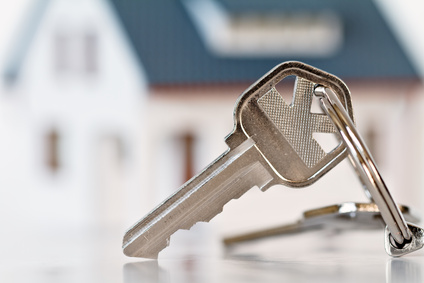You may have caught on to stories of reverse mortgage loans recently, and how popular they have become in these financially difficult times. Granted, they can be a great source of finance to help you handle a number of expenses in your home, but is it worth the risk?

© Mariusz Blach - Fotolia.com
No matter how great a loan is, it is never a charitable donation to you and you will need to bear in mind the repercussions of the same in order to ensure that you are making informed decisions. Here are the three most important considerations:
Costs Of The Mortgage
When you are enjoying a loan the interest is not the only fee that you will be paying off. The reverse mortgage option is no different from regular mortgages, with all the added extra costs that they entail. Indeed, in many cases reverse mortgages can work out to be even more expensive than the standard variety.
The cost of origination, early closure, processing charges and other fees for a reverse mortgage is quite high when compared to the usual mortgage loan or any other forms of loan. Be prepared to shell in the event you ever apply for one. Remember, you must have the necessary cash for settling these costs available to you when you are applying for the reverse mortgage. Some banks incorporate these fees into the loan amount while others might need you to pay them at the beginning.
Detrimental Impact On Your Other Benefits
When you are approved for a reverse mortgage loan, the same amount will be made available to you in a liquid cash mode as a lump sum. This might mess with the other benefits that you might be enjoying because of the social security status that you have. For example, the social security income that you are enjoying is tax free until your income or the value of your assets rises above a certain level. The approval of the reverse mortgage loan might overshoot this limit and mean that your social security benefit becomes taxable.
Rate Of The Mortgage Loan
In case you have been expecting to enjoy the usual favorable rates that conventional mortgages come with, then you are in for a shock. The rates of interest on the reverse mortgage loan are often quite a bit higher than those found with conventional mortgages.
To counter this, you'll need to have a high credit score to supplement your application in order to bring down the interest rate to a favorable level, suggests Ali Farahpour, the famed mortgage expert. Many reverse mortgage lenders might write off the initial fees or give you a flexi payment plan for the same if your credit score is high enough.
Once you have taken special consideration to ensure that these three aspects are favorable for you, you can go ahead with the reverse mortgage application.
Brenda Lyttle is an enthusiastic custom home builder. She loves her job as she helps people frame out their dream homes from their imaginary canvas into reality.
This is perfect timing for this information. I have been asked my opinion of reverse mortgages several times in the last two months as their is heavy tv advertising for this kind of program.
I'll simply refer them to this article and let them feel comfortable making their own decisions.
Thank you.
Hi Brenda,
Very interesting article. I found your comment that the loan amount could cause your SS benefits to become taxable. I was surprised, as I was not aware that a loan could be viewed as income. But I can see how this type of mortgage is different in that regard. Given the terms and other issues you noted, I think it's fair to say that reverse mortgages are nothing more than a money making scam that is legal. When a homeowner counts the potential costs, there is no real benefit to them whatsoever, other than some "quick cash". Cash that comes with a very steep cost. I guess that given the qualifying issues many seniors will have, we'll next see banks funding "Deed Pawn" stores cropping up alongside "title pawn" locations. Thanks again for your clear overview of this subject. The public needs more clarity on this decision and others like it that are being heavily promoted.